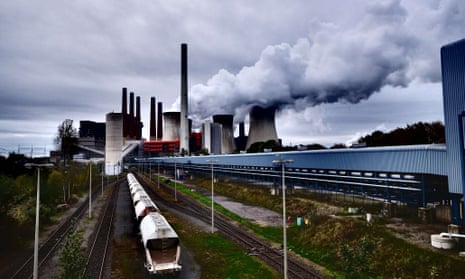The world’s richest sovereign wealth fund divested from over 50 coal companies in 2014, new analysis has revealed.
Norway’s Government Pension Fund Global (GPFG), founded on the nation’s oil and gas resources and worth now £580bn in total, is being targeted by fossil fuel divestment campaigners.
The GPFG sold off its holdings in 53 coal companies in 2014, dumping 16 US companies including Peabody Energy and the mountain-top-removal companies Arch Coal and Alpha Natural Resources. The fund also dropped 13 Indian companies, including the giant Coal India.
But only three Chinese coal companies were removed from the fund’s portfolio and the total value of its coal holdings fell by only 5% to £6.5bn. On Friday, it was revealed that the fund’s stake in major oil and gas companies rose to £20bn in 2014.
“The GPFG divested from 53 coal companies, which is a third of the number of coal companies we found in the portfolio the year before,” said Heffa Schuecking, director of the German NGO Urgewald, which did the analysis. “While this is a laudable first step, the overall result is very disappointing as the GPFG’s total investments in the coal industry show only a marginal decrease.”
Truls Gulowsen of Greenpeace Norway said: “We are happy to see that the GPFG divested £60m by dropping 13 Indian coal companies, but at the same time, it has increased its investments in the Chinese coal sector by £61m.” China’s coal consumption fell for the first time this century in 2014, helping to end the upward trend of global carbon emissions.
Norway’s largest private pension fund KLP divested from coal in 2014 and Gulowsen said: “It is shameful that Norway’s private pension funds are far more willing to take action on the coal issue than the GPFG. Investing oil proceeds into the coal industry is the worst possible use of our nation’s money.”
A series of analyses have shown existing coal, oil and gas reserves are several times the amount that can be burned whilst keeping global warming under the internationally agreed 2C limit. A recent study found 80% of coal reserves would have to be kept in the ground.
Many senior figures and institutions in the financial world, including the World Bank, Bank of England, HSBC, Goldman Sachs and Standard and Poor’s, have warned that only a fraction of known fossil fuel reserves can be safely burned and that the remainder could plummet in value posing huge risks to investors.
The Go Fossil Free divestment campaign received a significant boost on Sunday, when it received the support of the UN organisation in charge of global climate change negotiations.
“We support divestment as it sends a signal to companies, especially coal companies, that the age of ‘burn what you like, when you like’ cannot continue,” said Nick Nuttall, the official spokesman for the UN framework convention on climate change (UNFCCC). “We have lent our own moral authority as the UN to those groups or organisations who are divesting.”
The GPFG revealed in February that it had shed 32 coal companies due to concerns that environmental action would cut their value, but did not name those companies.
Arild Hermstad from the Future in Our Hands, Norway’s largest environmental organisation, said that in the lead-up to the crucial UN climate summit in Paris in December, Norway’s parliament had a unique chance to show what responsible investment means by excluding, coal, the dirtiest fossil fuel: “The GPFG’s coal investments are tiny in relationship to its total holdings, but the problems they cause around the world are huge.”

Comments (…)
Sign in or create your Guardian account to join the discussion